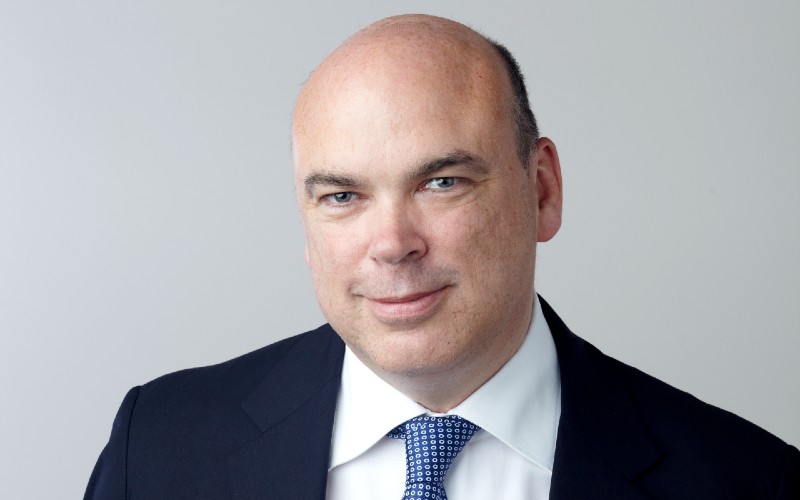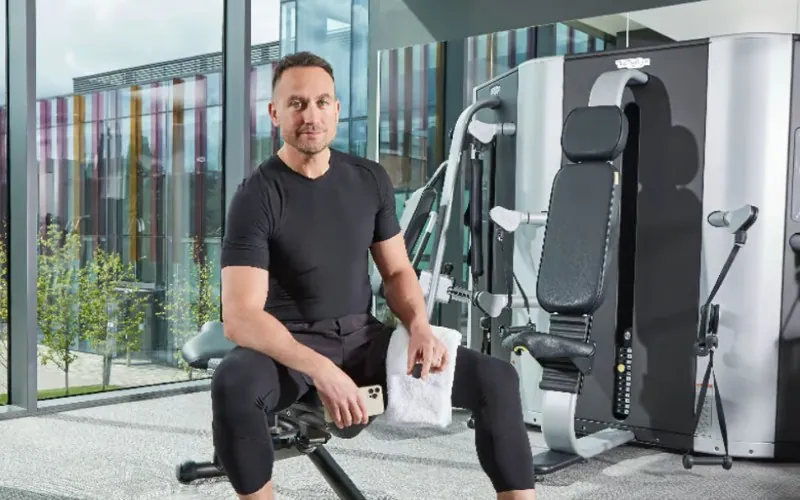2024 was a year of big headlines with both positive and negative tech news stories grabbing the attention of our readers.
Beginning with the New Year’s Honours and ending – tomorrow – with the judge’s scorecards on the vicious Mike Ashley v Mahmud Kamani scrap, a series of high-profile successes, failures, scandals, spats and tragedies have been reported on BusinessCloud.
Editor Jonathan Symcox takes you through our news review of the year.
January: New Year Honours, Quantinuum, Sorted
2023 ended with the tragic news of the death of Kate Vokes and her 22-year-old son Archie, who were killed in an avalanche in France. Along with her brother Chris Oglesby, Mrs Vokes ran the Manchester-based property company Bruntwood.
Outgoing TalkTalk CEO Tristia Harrison and Katie Gallagher, MD of Manchester Digital, were among the technology figures recognised in King Charles’ New Year’s honours list. Also recognised were Joanna Swash, CEO of Wrexham-based outsourced communication provider Moneypenny; Manchester Metropolitan University’s director of apprenticeships, Elizabeth Gorb; and Dr Charles Woodburn, CEO of BAE Systems.
Cambridge trailblazer Quantinuum was valued at £4 billion by the first giant equity fundraising round of 2024. The company’s major shareholder Honeywell exchanged its convertible instruments for the same class of preferred stock raised in the firm’s latest round, which was joined by JPMorgan Chase, Mitsui and Amgen.
A delivery platform that had raised $100m in investment was sold for just £66.73 at the end of January. AIM-listed Location Sciences assumed Sorted’s debts of £4m plus interest and invested £3m as part of a reverse takeover which saw the Manchester firm’s original investors lose their money. CEO Carmen Carey (pictured) would later leave in May 2024 after the share price dropped at the newly listed company, and it has continued to fall since.
February: Arrival, Onfido, Jagex, Hopin

The former car park at Arrival’s former HQ looks likes a graveyard for abandoned vehicles
In February, the UK operations of electric vehicle maker Arrival collapsed into administration. The Banbury-based business was worth £9 billion just three years before following a special purpose acquisition merger which saw it list on New York’s Nasdaq exchange. A BusinessCloud investigation later in the year documented its rise and fall and revealed images from its former UK HQ which resembled a graveyard for abandoned vehicles; electric truck maker Tevva would also collapse into administration in June.
London-headquartered identity verification leader Onfido entered talks to be acquired by US-based rival Entrust in a $400m+ deal. Founded at Oxford University in 2012, Onfido provides digital identity verification solutions to more than 1,200 customers worldwide – including some of the world’s leading financial institutions – and had over $130 million in annual recurring revenue when the deal completed in April. The 80x return is the largest ever for a student-led company at the University of Oxford.
Meanwhile over in Cambridge, games developer Jagex was snapped up in a £900m deal. CVC Capital Partners, backer of Six Nations rugby, and Haveli Investments agreed the takeover deal with global investor Carlyle Group, which had taken a majority stake in 2021 and overseen several acquisitions. Founded in 2000, Jagex is primarily known for its RuneScape titles.
A more sobering news story drew February to a close when former £4bn tech unicorn Hopin liquidated its UK business and moved its headquarters to the United States. The London firm was once the darling of global VCs which pumped hundreds of millions into its virtual events platform during COVID; however it had sold off its virtual events units, the core of its business, to a California tech giant in 2023.
March: Monzo, Spring Budget, Bytes, NPIFII

In March, Monzo raised £340m in a fresh round of funding which valued the neobank at almost £4bn. It said the round, led by Alphabet’s investment fund CapitalG and Chinese venture capital investor HongShan, would see it take a second crack at the US market after it withdrew from a previous North American launch in 2021.
Jeremy Hunt’s Spring Budget featured further cuts to national insurance, investment into the NHS digitisation & artificial intelligence, ‘British ISAs’ and a VAT threshold extension. But would it be enough to keep the Conservatives in power when the public took to the polls in the summer?
Bytes Technology Group plc began investigating the shock resignation of its former CEO Neil Murphy (pictured) after he was accused of unauthorised trading in the company’s shares. The investigation ultimately found 119 unauthorised transactions on 66 trading days between January 2021 and November 2023 which sent the London-listed stock plummeting. However it would rebound as the software company announced a 12.3% rise in annual revenue to £207m and 12.2% leap in adjusted operating profit to £63.3m. Sam Mudd, installed as interim CEO, would be appointed to the role on a permanent basis in the summer while two independent non-executive directors were also added to its board.
Northern founders were handed a £660m funding boost with the launch of the British Business Bank’s Northern Powerhouse Investment Fund II, extended to cover the entire North of England. Providing loans from £25k to £2m and equity investment up to £5m, it said the Fund would continue investing into companies operating within the North West, Yorkshire and the Humber and Tees Valley while expanding to include the whole of the North East.
April: GM 125 Rising Stars of Business, Orka, Darktrace

Darktrace CEO Poppy Gustafsson
April began with a bang as BusinessCloud and GM Business Growth Hub together revealed their inaugural GM 125 Rising Stars of Business list alongside 30 Ones to Watch. The selected companies were from four key sectors – GreenTech; digital, creative and tech; advanced manufacturing and materials; and life sciences – and based across the 10 local authority areas of Bolton, Bury, Manchester, Oldham, Rochdale, Salford, Stockport, Tameside, Trafford and Wigan.
One company which did not feature was Manchester-based hiring platform Orka Technology Group, which called in administrators. The worker tech platform, known as Broadstone when it launched in 2016, had previously been reported to have raised more than £30m in investment. Having interviewed founder Tom Pickersgill on several occasions, we documented its rise and fall – and spoke to him as he launched his next business venture out of the ashes of Orka at the end of April. Pickersgill also bravely addressed the audience at the launch event for the GM 125 Rising Stars of Business, held at KPMG.
April brought another huge deal in 2024 as cybersecurity giant Darktrace agreed a £4.3bn all-cash sale to US private equity giant Thoma Bravo which would complete in October. Headquartered in Cambridge and founded in 2013, Darktrace listed on London Stock Exchange in 2021. CEO Poppy Gustafsson (pictured) would step down as CEO later in the year, replaced by COO Jill Popelka, and be appointed Minister of State for Investment by the next government.
May: WeWork, Cazoo, Raspberry Pi

At the start of May, WeWork told tenants of its flagship UK office at No.1 Spinningfields in Manchester to leave before the end of the month as plans to close it down were set in motion. The US-headquartered flexible workspace company – once valued at $47 billion – would also close four sites in London as part of a restructure which halved its global office footprint. The UK arm of the business lost almost £150m in the year before its US parent filed for bankruptcy.
More bad news followed as Cazoo, once valued at more than £5bn and listed in New York, collapsed into administration. Hundreds of people lost their jobs with the firm, which offered end-to-end used car sales. Its wholesale arm was sold to G3, while Constellation Automotive – owner of rival Cinch – acquired a number of its assets. At the end of June, private equity-backed Motors would snap up the Cazoo brand itself. Cazoo reportedly owes £259m to more than 10,000 creditors.
A more positive development before the end of May saw Raspberry Pi – behind low-cost miniature computers used extensively in education – confirm plans to float on the London Stock Exchange as it revealed its cornerstone investors. In a boost for the UK public markets – battered by competition from the US and criticised for over-regulation and high costs – the Cambridge firm launched its £542m IPO in June, raising more than £31m.
June: Google, Mike Lynch, Tech Talent Charter, takepayments, Revolut

In June it was announced that a lawsuit faced by Google and amounting to almost £14bn would go to trial in the UK. The case, brought by Ad Tech Collective Action LLP, alleges that the US tech giant engaged in anti-competitive practices which affected revenues at online publishers in the UK. A London Tribunal gave the green light to the class action 18 months after it was filed. Funded by an unknown third-party, the suit seeks to recover costs and damages for UK-domiciled publishers and publisher partners. As an ‘opt-out’ case, all relevant UK publishers are included unless they indicate otherwise.
A long-running court case was concluded as UK tech tycoon Mike Lynch was acquitted of all fraud charges by a jury in a high-profile trial in the United States. The founder of Autonomy had originally faced 16 counts of fraud – and a potential 20 years behind bars – over the sale of the business to Hewlett-Packard for $11.1 billion in 2011 and been extradited to the US in 2018. Stephen Chamberlain, an executive who worked in the finance team at Autonomy, was also found not guilty on the same charges. The former UK government adviser – who also sat on the boards of the BBC and the British Library – had been under house arrest and would later tell the Sunday Times that he feared he would die in jail: “If this had gone the wrong way, it would have been the end of life as I have known it in any sense.” Sadly the story would take a tragic turn in August.
Tech Talent Charter, the UK non-profit focused on driving diversity and inclusion across the tech sector, announced that it would close later in the year. Co-CEO Debbie Forster accused firms of ‘quietly quitting’ D&I, outlining a “real risk of going backward” and adding: “We hope the decision will create a point of reflection and inflection.”
takepayments was snapped up in a reported £200m deal by Nasdaq-listed Global Payments. The Stockport-based FinTech had more than £50m annual revenues and 75,000 merchant customers.
Digital bank Revolut, the poster child for UK tech, announced a share sale to free up liquidity in the business. With the market for initial public offerings struggling to pick up – despite the float of Raspberry Pi – Revolut would join other private companies looking to alternative forms of liquidity for shareholders when it eventually signed agreements in August with a group of leading technology investors to provide liquidity to employees through a secondary share sale at a £34bn valuation.
July: Listing rules, General Election, Landvault, Graphcore, Flo Health

July saw the biggest overhaul of listing rules in the UK in three decades announced by the Financial Conduct Authority. The financial regulator set out a simplified listings regime with a single category and streamlined eligibility for those companies seeking to list their shares in the UK. The changes aim to support a wider range of companies to issue their shares on the UK’s stock markets amid competition from the United States and elsewhere.
However it was far from the biggest shift at the start of the month as Labour returned to power following 14 years of Tory rule. We reported the reaction from the tech and wider business communities and also profiled new Tech Secretary Peter Kyle.
The year of big deals continued with a £350m swoop for London metaverse firm Landvault. US acquirer Infinite Reality was valued at $5.1bn as it raised funds from a private multi-family office alongside the all-share deal for a firm which serves household name clients with digital twins.
AI chipmaker Graphcore, valued at $2.8bn in its most recent funding round in 2020, was acquired by Japan’s SoftBank Group Corp months after it was forced to lay off workers and close global offices following a huge drop in revenues and widening losses. The Bristol-based firm had failed to cash in on the AI boom as its IPUs (intelligence processing units) have not been adopted widely enough to compete with the GPUs (graphics processing units) of rivals such as Nvidia.
At the end of July, FemTech Flo Health joined the ranks of British unicorns with a £156m raise. The Series C investment came from General Atlantic, making it the first purely digital consumer women’s health app to achieve unicorn status. However the deal would provoke a row the following month…
August: Female Invest, Modern Milkman, Tommy Tognarelli, Mike Lynch, Reaction Engines

… Female Invest, on a mission to close the financial gender gap, had raised £8.7m in Series A funding around the same time – and the EdTech’s co-founder Anna-Sophie Hartvigsen pulled no punches when writing about the Flo Health raise on LinkedIn. Pointing out that Flo was “founded by men, led by men and funded by men”, she added: “If this doesn’t show you everything that’s wrong with the ecosystem, I don’t know what will.” The resulting social media storm polarised views in both camps.
We reported how Modern Milkman founder and CEO Simon Mellin is moving to the US to oversee the company’s growth plans Stateside. The move follows the firm’s acquisition of its US namesake Modern Milkman.
Manchester entrepreneur Tommy Tognarelli passed away from cancer at the age of 41. Tognarelli co-founded PlainSailing.com in 2013 with his twin brother Adi to make it easier to book a sailing holiday.
Mike Lynch (pictured), celebrating his freedom with friends and family on his superyacht off the coast of Sicily, lost his life after the vessel was hit by a freak waterspout tornado and sunk. Also drowned were Morgan Stanley International chair Jonathan Bloomer and his wife Judy, Clifford Chance lawyer Chris Morvillo and his wife Neda, Lynch’s 18-year-old daughter Hannah and the ship’s cook Recaldo Thomas. There were 22 people on board the Bayesian – named after Bayesian Theory, which formed the basis of Lynch’s PhD thesis and the technology of his former company Autonomy – when it was caught up in the bad weather. Fifteen people were rescued, including a one-year-old child and Lynch’s wife Angela Bacares, which it was later reported remains the target of a £3bn claim by HPE.
Around £200 million was wiped off the value of Abingdon-based Reaction Engines, a company seeking to make hypersonic flight a reality which was founded in 1989 by three propulsion engineers from Rolls Royce. It later crashed into administration.
September: Rightmove, Innovate UK, THG

At the start of September, an Australian property giant backed by Rupert Murdoch’s News Corp began exploring a £4.4b swoop for UK PropTech giant Rightmove. When the bid came it was for £5.6bn but rejected as “wholly opportunistic” by the online property portal, which led to a war of words and an improved £6.1bn bid, again turned down. REA Group would abandon the move by the end of the month.
Female founders called for reform at Innovate UK after it was revealed that the government innovation agency’s flagship Women in Innovation Awards had underfunded female founders to the tune of more than £2m. After 1,452 applications were made by female-founded and female-led businesses across the UK for £75,000 to “develop their exciting and innovative ideas”, only 25 were awarded the cash – leading to a social media revolt and climbdown which saw Innovate UK quickly issue grants to a further 25 founders, amounting to the original 50 total they had promised funding for. We brought you the full inside story of Emma Jarvis (pictured) of Liverpool FemTech Dearbump lit the touchpaper, leading to a collective which raised concerns about the programme’s transparency, equity and effectiveness.
Listed Manchester firm THG revealed plans to demerge its technology infrastructure arm Ingenuity from its eCommerce business. Ingenuity, which provides logistics services to the likes of high street giant Frasers Group, has 4,000 staff and 12 distribution centres globally, but analysts suggested it will take 3-5 years for the capital-intensive company to break even and that it is likely to require significant additional funding – therefore taking the business private would allow THG to retain the material free cashflow generated by its other operations. Yet another investigation from BusinessCloud executive editor Chris Maguire subsequently brought our readers the inside track and asked: ‘What’s going on at THG Ingenuity?’
October: Carbon capture, Monese, N Brown, Prevail, boohoo, Autumn Budget, Northern Leaders

In the first week of October Britain became the first industrialised nation to end its 150-year usage of coal to produce power – and the government subsequently pledged to reignite the industrial heartlands in the North West and North East of England with funding for carbon capture sites. It reached commercial agreement with industry to create two sites, one in each region, which it says will directly create 4,000 jobs and support a further 50,000 jobs in the long-term.
The UK’s first app-based bank was saved by Pockit after HSBC joined Kinnevik in writing off its investment. Monese once seemed destined to become a unicorn business, but would fall further behind digital banking rivals Revolut, Monzo and Starling, with pre-tax losses widening to £30.5 million in 2022. The combined company now serves around 3m customers.
A deal to take online clothing retailer N Brown private after more than 30 years as a listed entity began in October. Shareholder Joshua Alliance agreed a deal which values the Manchester-headquartered company at £191m. Around 100 jobs are being cut as a result of the takeover, expected to complete in early 2025.
Adam Crofts (pictured), who once stated his ambition to create a tech unicorn with Prevayl, stepped down from the wearable tech business he co-founded with serial entrepreneur David Newns. The startup aimed to connect sports clothing capable of delivering biometric data to its users, with England footballer Declan Rice among the stars endorsing the brand. However although the company secured a number of patents for its technology it struggled to gain any traction and most of its 40 staff were made redundant. Newns told BusinessCloud that one arm of the business – Prevayl Ltd – would go into administration while the remaining staff will focus on Prevayl Innovations, developing patents and IP to licence to commercial partners with traction in the market.
Perhaps the biggest story of the year saw Mike Ashley launch a sensational bid to become CEO of listed Manchester online fashion retailer boohoo. Ashley’s Frasers Group plc, which holds around 27% of boohoo Group plc’s voting rights, sent an open letter to boohoo citing a “leadership crisis”, “abysmal go-to-market performance” and “mis-management”, leading to an acrimonious tit-for-tat exchange which saw boohoo’s CEO step down and warnings over Frasers’ motivation for its moves. It will conclude tomorrow – 20th December – with a shareholder vote on whether Ashley will be appointed to the board and boohoo founder Mahmud Kamani removed from it.
Labour’s first Budget announced tax rises of £40bn to plug the “black hole” in the UK’s finances as Chancellor Rachel Reeves said the country needed “responsible leadership” after 14 years of Conservative rule. There were also funding pledges for technology R&D. But what did the UK tech sector and wider business community make of the announcements?
October went out with a bang as BusinessCloud’s inaugural Northern Leaders list was published. Billionaires, politicians, philanthropists, stars of TV and sport, and community leaders were among the 200 names celebrated as making the biggest positive difference to the North following an exhaustive four-month judging process.
November: Web Summit, Invest in Women Taskforce

November saw BusinessCloud attend Web Summit, Europe’s largest tech conference, for the first time. Editor Jonathan Symcox’s trip got off to a flier when he saw Manchester United captain Bruno Fernandes come to the rescue of a passenger on board his easyJet flight, with Susanna Lawson – heading to Lisbon as a mentor on GM Business Growth Hub’s ASCEND Scale Up Programme – grabbing the all-important selfie. The story went viral worldwide and ended up on the back page of the Daily Star – coincidentally the only media publication not to credit BusinessCloud for breaking the story.
Among the ASCEND businesses attending Web Summit was Ayaan Mohamed Ali – and she thought nothing of hijacking one of the stages to pitch her business Digitech Oasis. We also reported from KPMG’s Global Tech Innovator final – interviewing entries from the UK, Ireland, Australia and eventual winner Japan – as well as offering tips for standing out in a crowd the size of Old Trafford in our ‘Web Summit in pictures’ feature.
The Invest in Women Taskforce secured over £250m of funding. Described as an ‘historic milestone’, capital has been committed by Barclays, M&G, the British Business Bank, Morgan Stanley, Visa Foundation, BGF and Aviva to invest in female-founded businesses across the country. The funds will be deployed either directly by these organisations or through a ‘Women backing Women’ fund. A process has been initiated to select a fund manager or managers to deploy the latter.
December: FD, Dext, Vodafone/Three, BenevolentAI

At the start of December, Northern Irish firm FD Technologies plc completed the sale of its First Derivative capital markets consulting business to US software company EPAM Systems Inc for an enterprise value of £230m. It said the deal will enable it to focus on its KX software business and provide the funding for it to become cash generative.
Soon afterwards, £3bn IRIS Software Group agreed to acquire bookkeeping automation firm Dext Software Ltd in a deal reportedly worth more than £500m.
And just a single advent calendar window further on, the £16.5 billion merger of telecoms giants Vodafone and Three was given the green light by the Competition and Markets Authority. In September the regulator had thrown the deal into doubt over competition concerns – but had provisionally ruled in November that a multi-billion-pound commitment to upgrade the merged company’s network across the UK – including £11bn to roll out 5G – combined with short-term customer protections could solve these concerns.
A week ago, more expected redundancies were announced at BenevolentAI alongside plans to see it delist from the Euronext exchange in Amsterdam. Earlier in the year we covered the closure of its US office; a boardroom coup led by founder Kenneth Mulvany (pictured) which saw the exit of its CEO; a restructure which narrowed losses; and a return to its foundational objective of helping pharmaceutical partners to discover and develop transformative drugs rather than developing its own pipeline. Mulvany founded BenevolentAI in 2013 but left the board in 2022 when it listed via a SPAC merger which valued it at more than £1 billion prior to a spectacular fall in share price.
Summary: The year of AI (again)
The furthest-reaching story of 2024 is one which affects almost everyone: the rise of AI and large language models. As startups, scaleups and enterprise businesses alike seek to harness the transformative power of algorithms – triggered in earnest by the launch of generative AI chatbot ChatGPT in 2022 – experts have penned more than 20 insights pieces on BusinessCloud, from why AI still needs a human editor to how it is reshaping the landscape in private equity, how to protect yourself from the dangers of ‘shadow AI’, legal tips ahead of the UK AI bill, how it can help protect businesses at the most wonderful fraudulent time of year and what 2025 holds for this rapidly evolving technology.

